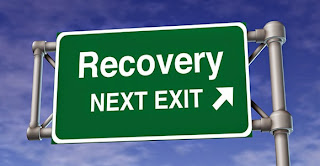How do I talk to my daughter about addiction?
Free Rehab Services Helpline
Help Available 24/7
1-800-513-5423
PRIVACY GUARANTEED
Get Help Now
Putting Addiction Into Context
Teenage girls see addiction everywhere these days: movies, pop songs and shows like “Breaking Bad” and “Weeds” make addiction seem cool. Teens can develop behavioral or chemical substance problems, but teen girl addiction risks tend to be highest for prescription drugs, sex, exercise, or the internet. This means it is now more important than ever for you to educate your daughter about the negative effects of addiction.
Make sure your voice is heard. Here are three ways to help you make sure your daughter knows that addiction is anything but cool.
1. Talk openly about the consequences and risks of addiction.
Take the time to talk to your daughter about the consequences of addiction. Remind her that addiction can jeopardize her education and career opportunities, put her in jail or prison, and cause health problems or even death.
If you have a family history of addiction or your daughter tends to be a thrill-seeker, she may be higher-risk for addictive behavior. Emphasize how addiction has negatively affected your family in the past and tell her about the warning signs of addiction. This will help her to be able to recognize addictive behavior in both others and herself. While family addiction recovery is possible, try to prevent addiction from being in a threat in the first place.
2. Discuss the dangers of prescription drugs.
Many teens opt for prescription drugs because they believe the legal consequences and health risks are lower than those of street drugs. Unfortunately, this isn’t true: not only can your daughter still be prosecuted, but she also isn’t any safer if she’s abusing prescription drugs. Between 1999 and 2012, deaths caused by prescription painkillers tripled.
Keep in mind that prescription drugs are often the easiest for your daughter to obtain; almost every household has a prescription sleeping aid or painkiller in the medicine cabinet. So make it clear that it’s not okay to abuse a medication just because you have a prescription for it.
3. Don’t overlook “less serious” addictions; remind your daughter that all addictions are serious.
It’s a mistake to downplay some types of addiction. You may prefer that your daughter spend four hours per night on Facebook rather than spend that time getting high, but remember that addictive behavior is often repeated. One kind of addiction can easily lead to others, so it’s important to highlight the dangers of any kind of addictive behavior, not just drug and alcohol abuse.
 This means that you should look beyond drug use: social media, sex and exercise are all common addictions of troubled teen girls. For example, if your daughter compulsively checks her social media accounts and experiences anxiety or mood swings if she can’t check them, she may be showing signs of addiction.
This means that you should look beyond drug use: social media, sex and exercise are all common addictions of troubled teen girls. For example, if your daughter compulsively checks her social media accounts and experiences anxiety or mood swings if she can’t check them, she may be showing signs of addiction.Opening Up The Conversation
One final note on talking to your daughter about addiction: Remember to make the conversation a two-way street, not a lecture. Your daughter will be more receptive if you encourage her to share her own opinions and to provide a non-judgmental, listening ear. Further, be sure that you are not engaging in enabling behaviors around addiction. If you suspect that your daughter already has a problem, seek professional help from a licensed clinical psychologist or family counselor. http://www.freemyaddiction.com/
Resource link
